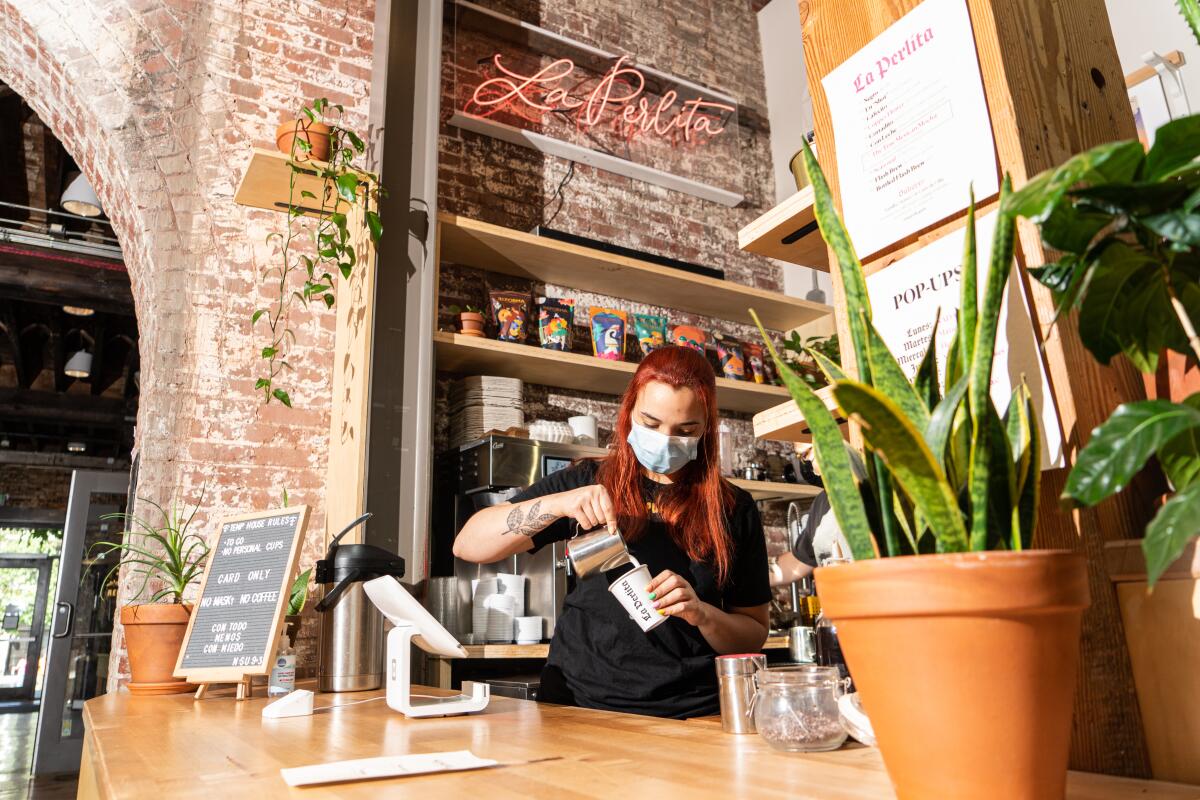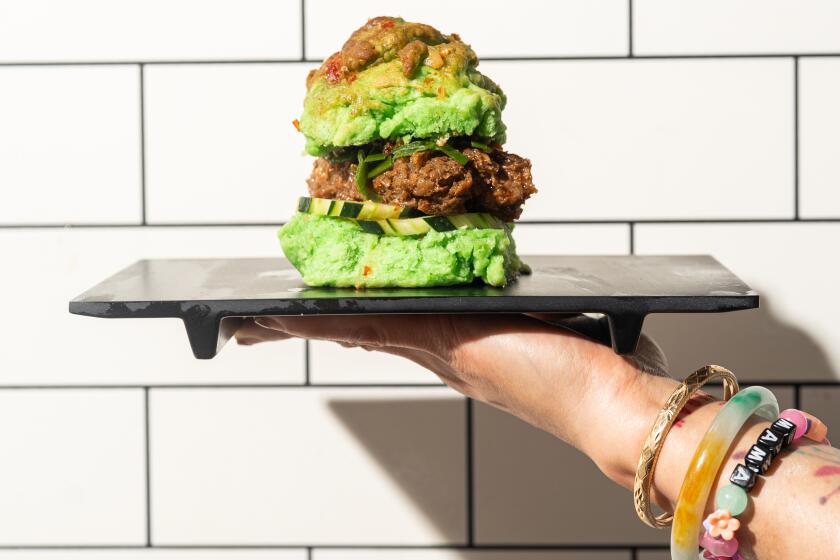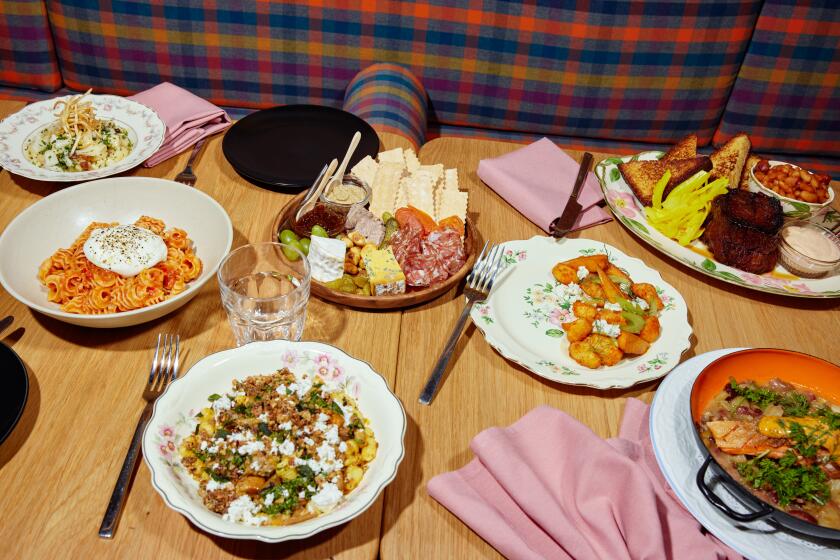COVID claimed some of Portland’s biggest restaurants; others pivoted their way to the future

- Share via
A unique miasma of pandemic strife, social media reckonings and unexpected business churn has left Portland’s food landscape decidedly changed. The restaurant empires of Andy Ricker (Pok Pok) and John Gorham (Toro Bravo, Tasty n Sons) are gone, although two former Tasty employees have reimagined Gorham’s menus in suburban Lake Oswego. Also gone is Ryan and Elena Roadhouse’s ambitious appointment-only Japanese restaurant, Nodoguro, as well as its more casual, neighboring lounge, Tonari, whose opening momentum was wiped out by the shutdowns. Chef Vitaly Paley has closed multiple spaces over the last year, including hotel restaurants Imperial and Headwaters, but his flagship Paley’s Place is open for full service under chef de cuisine Luis Cabanas.
Many Portland chefs and restaurateurs are finding the wherewithal to look forward.
On the other hand, it’s easier to dine at some of Portland’s most sought-after reservation-only kitchens, where menus have been modified and made more accessible. The list includes Akkapong “Earl” Ninsom’s intimate Thai tasting-menu restaurant Langbaan, which has been reimagined as a walk-up patio experience, as well as Peter Cho and Sun Young Park’s modern Korean restaurant Han Oak, now across town in casual form as Toki, specializing in bao bun burgers and snacky brunch specials.
Some Portland mainstays are still open, including neighborhood bistro on culinary steroids Coquine, home to one of the city’s best wine programs; Le Pigeon and Canard, the high-low one-two punch from chef Gabriel Rucker, which continues to draw travelers from around the world; chef Gregory Gourdet’s new Haitian concept, Kann, which debuted as Kann Winter Village in late 2020 and is scheduled to reopen later this year; and Nong Poonsukwattana’s Khao Man Gai, home for the last decade to a perfect rendition of Hainanese chicken and rice.
Perhaps no chef/restaurateur has pivoted more dramatically than Vince Nguyen, whose minimalist tasting-menu spot Berlu opened in the summer of 2019, drawing on Nguyen’s experience cooking for Michelin-starred restaurants, including Providence and Noma. “Prior to the coronavirus, I never cooked Vietnamese food,” said Nguyen, who grew up in Orange County. “My dad worked two jobs, and we ate mostly fast food and TV dinners.”
But the pandemic led Nguyen to reconnect with his heritage, learning about Vietnamese cooking and baking traditions by watching chefs on YouTube (“It’s the modern cookbook”) and leading Berlu through a range of permutations: a weekend bakery serving bánh bò and moon cakes; elaborate takeout dinners paired with accompanying instructional videos starring the chef; rotating weekly specials exploring the lesser-known soups of Vietnam (“We avoided the phos and more obvious ones”); and night-market pop-ups serving traditional Vietnamese favorites like bánh tráng nuong, a grilled rice cracker topped with eggs, pork belly and shrimp.
“We’ve now been open longer as a pandemic pivot than we were as a tasting menu,” Nguyen said. “It’s been an opportunity for me to grow not just as a chef but as a person and to think about my experiences as a cook as well as my own heritage.”
Berlu plans to reopen with a tasting menu in the fall, Delta variant permitting. When it does, it will be an avowedly different experience, one focused specifically on the Vietnamese food Nguyen fell in love with during the shutdown.
“I’m drawn to challenges,” the chef said, “and that’s what got me into cooking in the first place. It has been a huge challenge to run a restaurant during the pandemic, but it also inspires creativity. Through these pivots I’ve been able to express myself and challenge not only myself but diners as well, by representing Vietnamese cuisine in this way. It has been challenging but also empowering.”
More to Read
Eat your way across L.A.
Get our weekly Tasting Notes newsletter for reviews, news and more.
You may occasionally receive promotional content from the Los Angeles Times.











